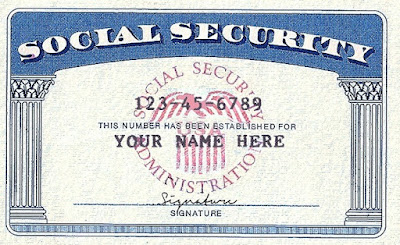What's the Difference Between A Work Permit & a Permanent Legal Status
Those who want to live, work, or have a legal status in the USA have a variety of possibilities. There are a variety of alternatives available, ranging from requesting a work visa or employment permission to requesting residency and citizenship. It's crucial to understand the distinction between temporary work permits and long-term legal statuses, though.
Younger undocumented immigrants who get work permits or employment authorizations through DACA frequently hold one of these legal statuses (Deferred Action for Childhood Arrivals). Although they provide temporary legal status within the United States under specific conditions, work permits do not provide long-term legal status.
What Is a Work Permit?
Foreign nationals without legal residency status who simply want to work temporarily in the United States are granted work permits, also known as employment authorization documents (EADs). Work permits may be renewed based on a variety of conditions, and its validity may range from a few months to a full year.
For instance, a person entering the nation on a fiancé visa may request a brief work permit to get them by until they get married and alter their status. If a person on a religious worker visa wants to work for pay in addition to the religious work they are there to perform, they may just need a brief work permit.
With an EAD, you can work lawfully for any USA employer, wherever in the nation, and it is not employer-specific. Spouses of exchange scholars and investors, students participating in optional training, and L-1 internal company transfers are a few examples of those who need a work visa to work legally.
What is a Permanent Legal Status?
Persons who are authorized to continuously reside and work in the United States of America have a permanent legal status. A work permit does not automatically create the possibility of obtaining future permanent legal status. The two basic types of permanent legal status are citizenship and permanent residency.
Permanent Residency
An individual who has undergone naturalization and obtained the status of lawful permanent resident of the United States is known as an LPR. LPRs receive Alien Registration Cards, allowing them to lawfully reside and work in the USA. Popularly referred to as a "green card," the Alien Registration Card (even though it has gone through many colors through its history).
A person with a green card has the option to petition for their spouse and children to join them in the United States in addition to being granted the ability to live and work there. However, it also comes with obligations, such as remaining in the country permanently and not traveling abroad for longer than six months at a time.
Citizenship
Citizenship, an immigrant status with certain rights, obligations, and rewards, is another type of long-term legal status in the US. A work visa does not give you the ability to apply for citizenship down the road; having a permanent legal status, such as a green card, does.
A U.S. Citizenship does not need to be renewed after a specific amount of time, unlike work permits or even permanent residency, although it may be canceled by USCIS in certain situations.
How Can I Get A Permanent Legal Status?
How can an illegal immigrant obtain a green card is a question I frequently field. or "How can a non-citizen become a citizen?" Despite how frequent they are, these questions are rarely easy to answer.
The acquisition of legal status can be accomplished in a variety of ways, marriage being only one of them. The eligibility criteria and documents needed for immigration filings are intricate and might differ from case to case. To determine which category could be most suited to each immigrant's unique circumstances, it is strongly advised that you speak with an experienced and reputable immigration lawyer.
Immigration petitions have highly distinct procedures and specifications depending on whether you're requesting permanent legal status for a single person or a whole family. Filing for work permits like DACA typically involves less labor than applying for citizenship or permanent residency (Deferred Action for Childhood Arrivals).


Comments
Post a Comment